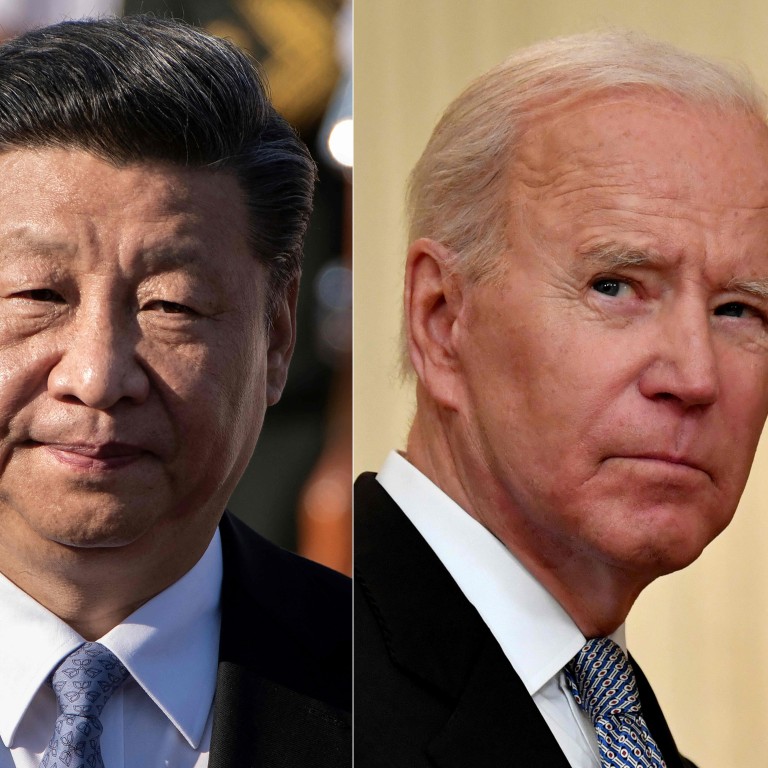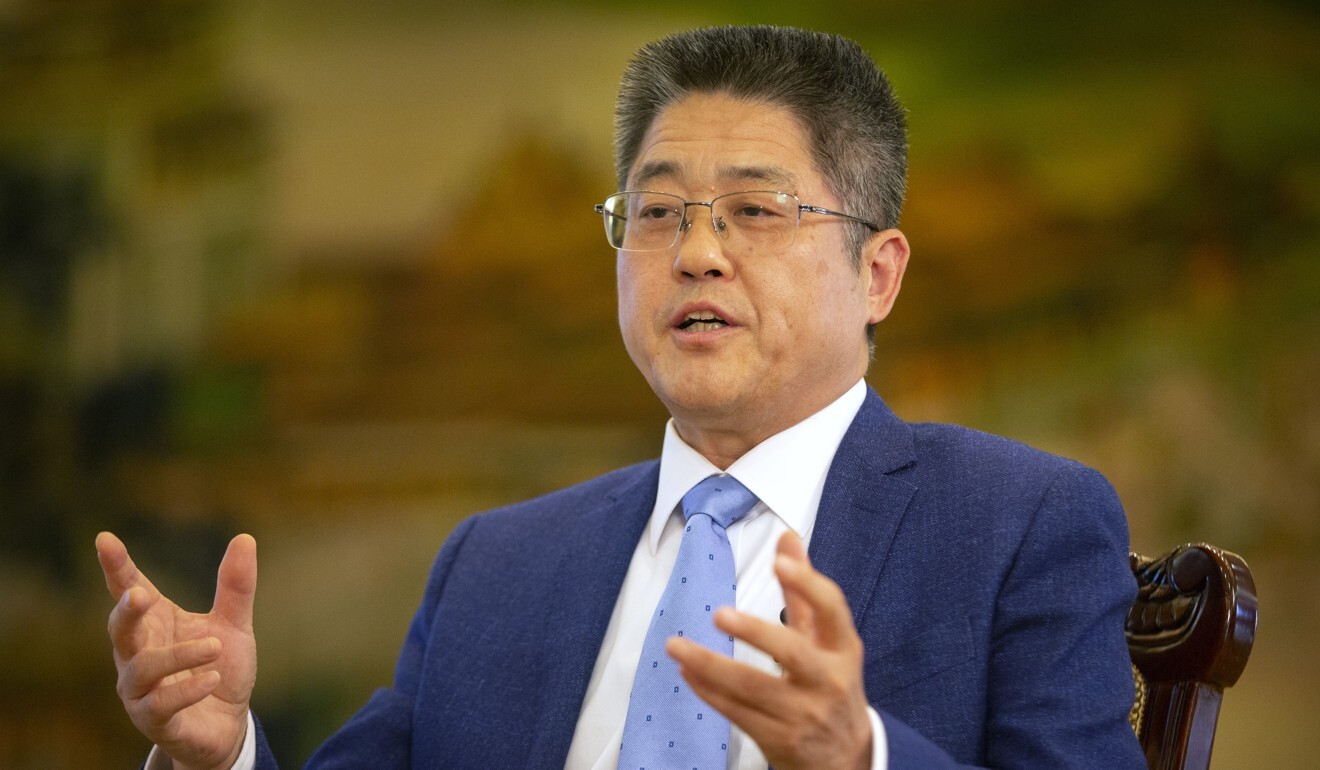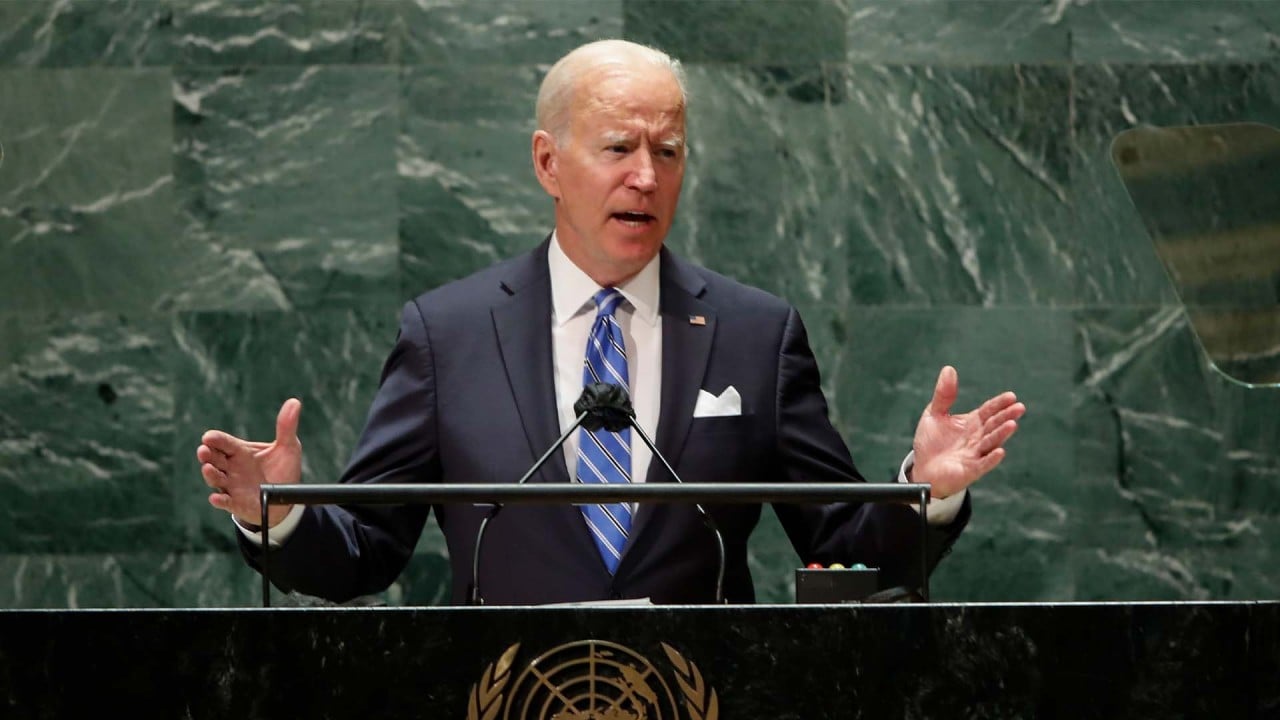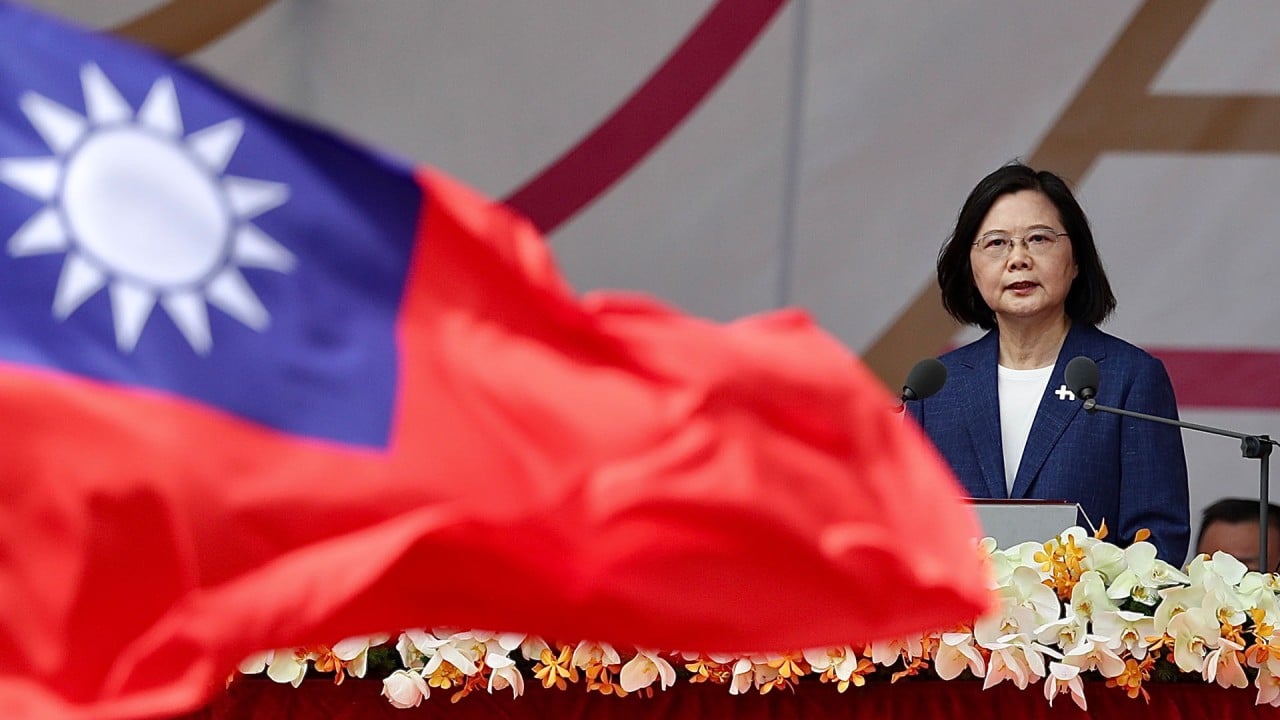
China, US working group ‘making progress’ on issues ahead of Xi-Biden summit
- Foreign vice-minister Le Yucheng says Beijing is open to dialogue and ‘confrontation will lead us nowhere’ in interview on state television
- But he also says Washington’s focus on China will be a ‘bigger mistake’ than Afghanistan, and that it’s ‘playing with fire’ on Taiwan
China and the US have been making progress on issues in their relationship after setting up a joint working group to pave the way for a virtual summit between the nations’ leaders, according to a senior Chinese diplomat.
“They have made some progress. This proves that dialogue and cooperation are indispensable, and that confrontation and conflict will lead us nowhere,” Le said. “In the meantime, the two sides need to work together to build a good atmosphere and create positive conditions for the two presidents to meet.”

On Afghanistan, Le described the end of America’s longest war as the “epitome of the once-in-a-century changes across the world” and said the chaotic US withdrawal from Kabul showed “the time has passed when a superpower can just throw its weight around”.
But he said the US had yet to learn this lesson. “The US declared that it ended the Afghan war to focus on major country competition, meaning with China,” Le said. “But in 20 years from now, the US would realise that it has probably targeted a wrong enemy and made an even bigger mistake.”
His remarks come as Beijing is under growing pressure from the Biden administration’s efforts to repair ties with alliance partners and forge a coalition to counter China in the Indo-Pacific.

02:47
US ‘not seeking a new cold war’, Biden says in first UN address
Le said double standards were at play and China’s assertiveness had been used as “an excuse”.

02:23
Taiwanese President Tsai Ing-wen says island 'will not bow' to mainland China
Le said the one-China policy was the foundation of US-China ties and that “taking the foundation as a card is as dangerous as playing with fire while holding firewood”. “On the other hand, Taiwan should not entertain being used as a card,” he said. “A self-perceived trump card may eventually end up being useless or discarded.”
Commenting on US trade representative Katherine Tai’s remarks last week that the US was considering “recoupling” with China, Le said Beijing hoped Washington would “truly change its course and … turn economic cooperation and trade into an icebreaker in bilateral ties”.
And he addressed criticism of Beijing’s increasingly assertive diplomatic and military posturing, insisting it was “the trend of the times” and that China stood “on the right side of history”.
“As both leaders approach their crucial tests next year – Xi’s re-election and Biden’s midterm elections – they will be compelled to adopt more nationalistic and less compromising lines,” he said.

